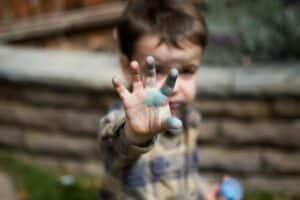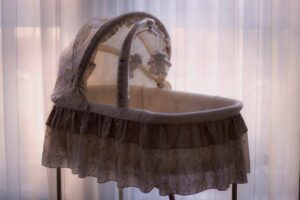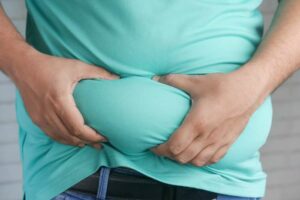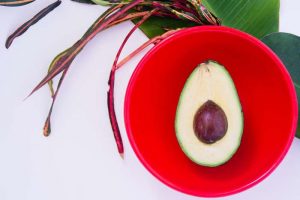If you are a mom, then you know that there are times when you need to heat up a bottle of formula for your baby.
So, can you microwave formula?
Many parents have advised against it as the microwave heats unevenly, so you might find the outer layer of the milk inside the bottle to be cold and the inner side of the milk to be extremely hot.
This is rather not safe for your baby, and you can always choose to warm the water in the microwave before making the formula; mindfully warm it and not make it boil or even hot.
In this blog post, we will discuss the best way to microwave formula so that it is safe for your baby to drink.
Is It Okay To Heat Or Microwave Baby Formula?
Parents have been advised against heating newborns’ bottles for an extended length of time in the microwave.
Sometimes, the bottle from the exterior appears to be chilly. Despite this, it may have a temperature in the bottle that is very dangerous for a kid; by putting infant formula in various glass and plastic nursing bottles and heating them for one minute in the microwave, researchers observed that the formula’s average temperature was only lukewarm.
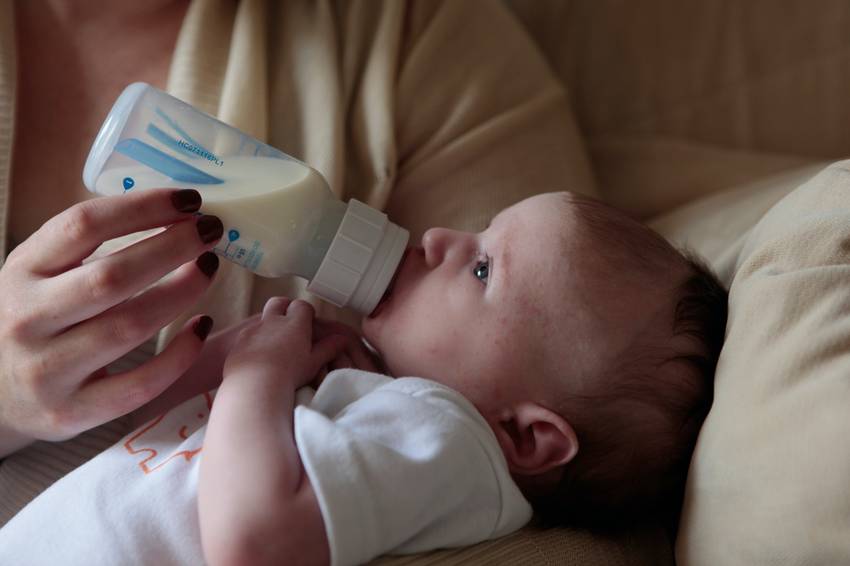
Various precautions must be followed while reheating bottles in the microwave, such as only utilizing plastic bottles. Heating infant formula or feeding with glass bottles or disposable plastic liners that come with some bottles is not suggested.
When heating, leave the bottle open. Lids and nipples trap heat, causing temperatures to rise.
What Is The Ideal Temperature For Baby Formula?
The ideal temperature to heat baby solution is 98.6 degrees Fahrenheit, which is the human physical temperature. This is because breastmilk is generally created at body temperature, and babies prefer it when it’s this specific heat.
Can you microwave formula in glass bottles at this temperature? The glass baby bottles may be warmed in the microwave, but it is not advised because the glass might shatter if the temperature is suddenly increased.
The rapid temperature change in a microwave can fracture or even shatter glass, which is not as prone to shattering as plastic. Plastic is a safer alternative, especially if you leave formula cooking in the microwave.
BPA is an estrogen-like chemical that may be hazardous to your health, so make sure any plastic baby bottles you buy are BPA-free. You might also need them if your bottles were bought outside of the United States.
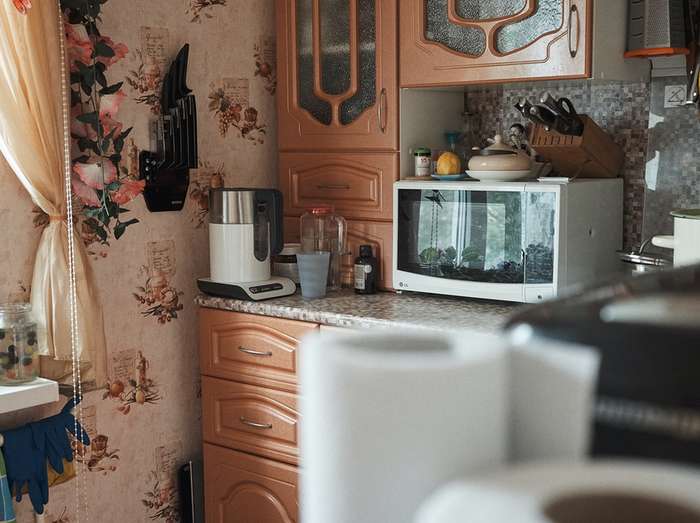
Is It Harmful To Heat Water For Formula?
It is safe to use the microwave to heat water for baby formula. Many of us prefer to boil water in the microwave rather than on a stovetop since it is faster. Warm the water before preparing your baby formula bottle. Make sure the water isn’t too hot but rather lukewarm, and keep swirling the bottle as you warm it up.
When heating water in the microwave, use a microwave-safe plate. Choose a dish that is big enough to allow you to easily warm up the water. After transferring the water and formula powder to a baby bottle, swirl it gently to evenly distribute the heat throughout the solution.
Does Microwaving Formula Remove The Nutrients?
Microwaving is a method of heating food that uses a high amount of heat, so it can damage nutrients to some extent. The nice thing about microwaving is that you may regulate the length of time it takes to cook your food.
In addition, microwave heating of powdered infant formula just requires you to heat the water and then combine them. As a result, you are not microwaving the formula; you’re only heating the water before mixing it. It’s usually advised that you boil breast milk and formula at a low boil for several minutes rather than at extremely high temperatures, which can damage nutrients substantially.
How Long Can You Microwave Formula?
1 cup or 225 ml of formula should be heated for about 1 minute. This helps to ensure that the liquid is heated uniformly, which minimizes the likelihood of hotspots.
If you’re heating milk, stick to intervals of 10 seconds; if you’re microwaving less formula, limit the overall duration. Swirl the bottle during the periods to ensure that no hot spots remain since they might be a hazard to your infant’s mouth and throat.
Tips For Microwave Formula
Despite the fact that it may not appear to be difficult, there are a few crucial things to bear in mind while heating baby formula in the microwave:
- Heat quickly in 10-second intervals.
- Make sure you heat the formula evenly by swirling the bottle.
- The amount of the solution should be less than 1 cup or 225 ml.
- The nipple should not be placed in the microwave.
- Beware of shattering glass or disposable plastic bottles, which may do so under high heat.
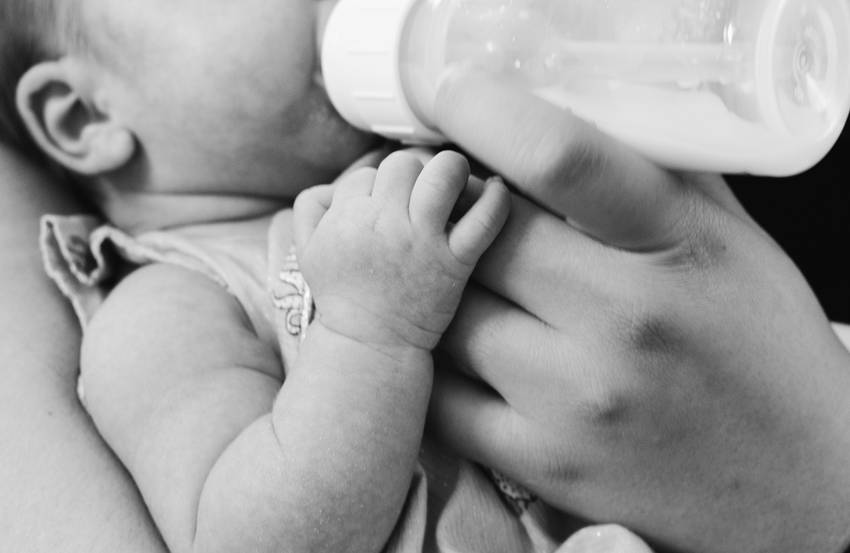
Frequently Asked Questions
Q1: How can you keep a bottle warm at night?
Ans: If you’re prepared to keep him in your bedroom or nursery, it’ll save you a lot of time to prepare fresh warm milk before sleeping.
Q2: Is it possible to warm up the ready-to-feed formula?
Ans: Yes, you may heat the pre-made formula in a microwave. Parents have been using the microwave to warm ready-to-feed baby formulas for years.
Q3: Is it possible to warm up formula bottles in a microwave?
Ans: Yes, you may heat up formula bottles made of microwave-safe materials in a microwave. Microwave heating of baby formula must be done carefully.
Q4: Is it possible to reheat baby formula if she didn’t finish it?
Ans: Unfortunately, you can’t reheat it. The formula should be used as soon as possible and never reheated. Whatever formula is remaining should be discarded.
Q5: Is it possible to heat Similac or Enfamil formula in the microwave?
Ans: Yes, it is possible to heat Enfamil or Similac in the microwave. Just follow the tips of microwaving carefully.
Q6: How long can the warmed formula be kept?
Ans: A bottle warmed over a hot water bath should be used within one hour, and any remaining contents should be poured down the sink. This also applies to powdered preparations as well as concentrated and ready-to-drink choices.
Conclusion
Make sure to heat in short intervals, stir well to avoid hotspots, and never heat more than a cup or 225 milliliters at a time. Additionally, only use bottles made of microwave-safe materials and never put the bottle’s cap or nipple in the microwave.
If you have any leftover warmed formula, discard it after one hour. Finally, remember that not all baby formulas need to be warmed—if you’re using a ready-to-feed option, there’s no need to heat it up.

